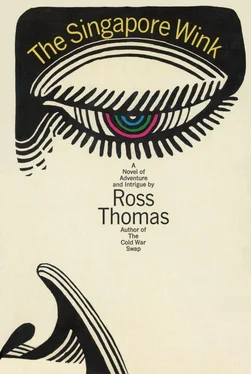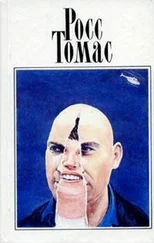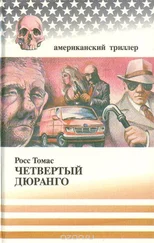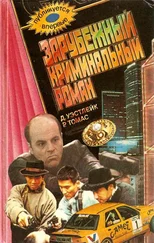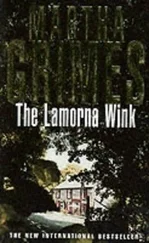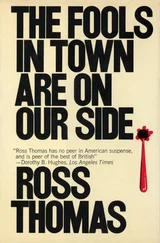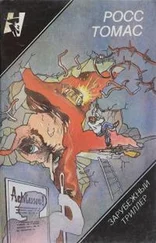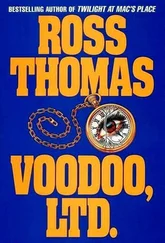My pedicab driver pumped me down Chin Chew Street, yelling at the pedestrians who cheerfully yelled back. The family wash, impaled on long bamboo poles, almost formed a canopy across the street and the hawkers poked whatever they were selling into my face. Four Samusis walked by, dressed in their blue blouses and pantaloons, tough, broad-shouldered women who belong to a sisterhood that shuns men and embraces hard, manual labor instead.
It was all there: the stalls selling red and white cakes and squid and rice and monkey; the key makers and the goldsmiths pounding away on their metal, sometimes in rhythm to the music, Chinese, American and English, that growled out of the never silent transistors; the stench of dirt and sweat mingled with the more subtle odors of crushed frangipani, sandalwood, and charcoal fires, and always the sound of human voices endlessly calling to each other from balcony to street, and from street to unshuttered window.
Fat Annie’s didn’t look like much and I asked my human engine, a medium-sized Chinese who seemed to have lost most of his teeth, whether he was sure that he had the right place. He rolled his eyes as if to describe the thousand and one delights that awaited me inside so I paid a dollar for the quarter-hour ride, which was three or four times what I owed him, and pushed through an open red door into a small cubicle where an old woman sat on a low bench smoking a long-stemmed pipe.
“Captain Nash,” I said.
She nodded and pointed her pipe at another door. I went through that into a larger room where there were some tables and chairs, no customers, a rattan bar in one corner with some bottles behind it, and what seemed to be a brand new National cash register on top of its left end. Next to the cash register was an abacus and a woman who sat quietly on a low, sturdy stool. The woman weighed at least three hundred pounds.
She watched me walk towards her with black eyes that had almost disappeared into the fat folds of her round face. “I’m looking for Captain Nash,” I said.
“He’s in the parlor through that door,” she said and moved her head a half an inch towards a door to the left of the bar. It took her a while to move her head and even longer to get it back into place. Her voice was surprising, not just because of its American accent, but also because of its soft, even melodious tone.
“You from the States?” she asked.
“Los Angeles.”
She nodded. “I thought so. That’s why Snooky comes here, because I’m from the States.”
“San Francisco?”
She laughed and her whole body jiggled like a three-hundred-pound bowl of vanilla pudding. “Not even close. I was born in Honolulu. You want a girl? They’re not all up yet, but I can promise you a nice young one.”
“You must be Annie,” I said.
“Not Annie, Fat Annie!” she said and roared out another laugh as she clapped her hands to her stomach and jiggled it mightily. When she was through laughing and jiggling she wiped her eyes with the back of her hand. “What about a girl? Make you a hell of a good price with a young tricky one seeing it’s so early.”
“Later maybe. Right now I have to see Nash.”
“Like I said, through that door.”
I went through the door and into what Fat Annie had called the parlor and found that her description was accurate. It was a medium-sized room filled with dark Victorian furniture and lighted with softly glowing lamps that sat on marble-topped tables whose legs were carved into whorls and clefts and curlicues. The floor was covered with a dark oriental rug and the pale green walls held gilt-framed nostalgic paintings of rural England. In the center of the room was a small table of dark wood that held a chess set. Bent over the pieces were Nash and a very young, very pretty Chinese girl dressed in a miniskirt It apparently was Nash’s move and he didn’t seem too sure about what it should be.
“Hello, Cauthorne,” Nash said without looking up. “Be with you in a moment.”
He studied the chessboard and then moved a bishop. The girl shot her queen down the board and said: “Check and mate in two move.”
Nash studied the board a few moments and then sighed and leaned back in his chair.
“That’s three in a row,” he said.
The girl held up four fingers. “Four in row. You owe me four dollah.”
“All right, four,” Nash said and took the money out of his shirt pocket and paid her. “You run along now, Betty Lou.”
The girl rose gracefully, smiled at me, and left through the door that I had entered.
“Betty Lou?”
“It’s close enough,” Nash said.
“When can we leave?” I said.
“Let’s eat first.” He shouted something in Chinese and an old man dressed in a black blouse and black trousers shuffled in. Nash spoke again in Chinese and then handed over some money. The old man asked a question, Nash replied, and the man, who looked eighty, but may well have been forty-five, shuffled out.
“He’ll pick it up along the street,” Nash said.
“Where did you learn Chinese?” I said.
“I got a Chinese wife. Nothing’s better, unless maybe a Japanese one, but I still don’t like the Japs on account of I got to know them too well during the war. Mean bastards. But let’s have a drink.” He rose and crossed the room to a table where a bottle of whisky and some glasses stood. I started to say “fine,” but I never got it out because the shakes hit, and Sacchetti started falling into the harbor again, and when I came out of it Nash stood in front of me, holding two drinks, and staring at me the way everyone stared at me, as if they were afraid they might miss something really interesting when I swallowed my tongue.
“Malaria?” he said. “If it is, its the goddamndest case I ever saw.”
I found my handkerchief and dried my face and hands. My shirt was soaked. “It’s not malaria,” I said.
“Happen often?”
“Often enough.”
He shook his head in what I assumed was sympathy and handed me a drink. “You feel up to going?”
“It won’t happen again. At least not today.”
We had the drink and some ten minutes later the old man was back with a tray full of food that he served on the small table. I could identify the rice, the noodles drenched with thick brown gravy, the strips of pork, and giant prawns. A couple of dishes were unfamiliar. We ate with chopsticks and considering my lack of practice, I got along well enough.
“What’s this,” I said as I picked up a morsel from a common bowl and chewed it thoughtfully. “Veal?”
Nash sampled a piece of the meat, frowned, shook his head, and then tried another. “Puppy,” he announced. “Good, isn’t it?”
“Delicious,” I said.
Nash’s boat was a fairly new fiber glass speedster that was about fifteen feet long and powered by a large outboard engine. It was tied up at a crowded quay on Singapore River between two broadbeamed tonkangs with eyes the size of automobile tires painted on their bows to ward off evil spirits. At least, that’s what Nash said. We went down the ten steps to the water’s edge where Nash used his foot to wake a sleeping Indian who had a line to the runabout tied to a big toe.
“My watchman,” he said.
“Where do you keep your kumpit? ” I said.
“Out in the roads. One of these tonkangs will lighten my cargo tomorrow or the next day.”
The watchman held the runabout while we climbed in. He then sprawled out on the bottom step and went to sleep again. Nash started the motor, backed us out into the river, and headed for the harbor and The Chicago Belle.
“What are you going to do when we get there?” he shouted above the engine.
“Ask to see Sacchetti.”
He shook his head and then shrugged as if he had dealt with fools before. The Chicago Belle was riding at anchor about one hundred yards out into the basin and the closer we came, the larger she looked.
Читать дальше
